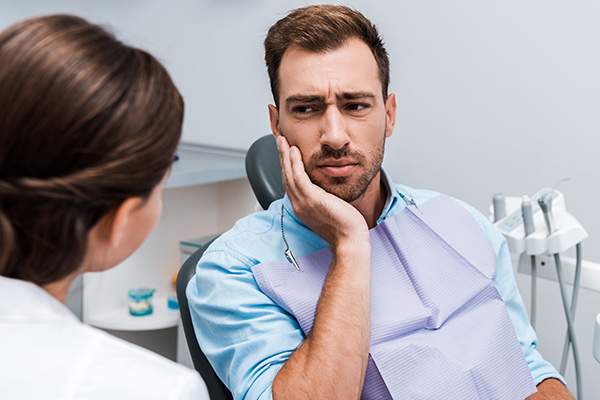Warning Signs of Sleep Apnea to Tell Your Dentist

Obstructive sleep apnea is a condition where you stop breathing many times during the night. This can have some serious consequences for your health. This can lead to sleepiness during the day because you are not sleeping deeply throughout the night. You are also at a higher risk of high blood pressure and heart failure. If you have sleep apnea, then you might be suffering from some types of dental problems.
Cracked teeth
People who have sleep apnea are more likely to clench or grind their teeth during the night. This is a condition that is known as bruxism. About 25% of people who have sleep apnea clench or grind their teeth during the night. This can cause the teeth to become more sensitive over time. In some cases, it can also cause the teeth to crack or to become damaged.
This can increase a patient’s risk of cavities. Patients who have sensitive teeth may have bruxism. Sometimes, having tight or tired muscles in the jaw is also a sign of bruxism. These are all important signs for patients to talk to the dentist about.
Pain in the jaw
Patients who have sleep apnea are more likely to have pain disorders that are associated with the jaw. This can include TMJ or TMD disorders. People who have problems with moving the jawbones or opening the jaw might have this condition as well. When a patient stops breathing, the jaw will automatically clamp down to stop the airway from becoming blocked. When this happens many times during the night, TMJ and TMD disorders can result.
Increased number of cavities
People who have sleep apnea often breathe through the mouth. This is a reflex from the body that is designed to take in more air automatically. However, breathing through the mouth can dry out the mouth and cause the protective saliva to evaporate. A dentist might notice that a patient has more cavities and erosion to the enamel.
Chronic headaches
There are many reasons why a patient with sleep apnea might experience headaches. For example, the constant grinding can cause the patient to overuse the muscles associated with the area. When the oxygen levels in the blood decrease from the lack of breathing, headaches can also result. Carbon dioxide can also build up in the body from sleep apnea episodes, which can cause an individual to wake up with a pounding headache.
Visit a dentist today
Obstructive sleep apnea can cause several oral health conditions that you should talk to your dentist about. Cavities, enamel erosion, TMJ disorders and tooth sensitivity can all result from sleep apnea. The good news is that controlling your sleep apnea can help to eliminate or reduce these problems. Talking to your dentist about these problems can help your dentist find a good treatment option. It is also a good idea to talk to your dentist about treatment options that can help to reverse these symptoms.
Request an appointment here: https://www.drelloway.com or call Randal S. Elloway DDS, Inc at (530) 527-6777 for an appointment in our Red Bluff office.
Check out what others are saying about our services on Yelp: Read our Yelp reviews.
Related Posts
Fluoride is a preventative measure that your general dentist uses to help protect your teeth between visits. It is also an ingredient in toothpaste that can give added protection. One of the most hotly debated topics surrounding toothpaste and tooth brushing is whether or not you should be using toothpaste that contains fluoride. Using toothpaste with…
Having a root canal treatment can help you regain your dental health. Most people are not aware of their need for this procedure. You may be one of those who dismiss some symptoms because of your busy schedule. If you want to know about the symptoms indicating your need for root canal treatment, here are…
Decaying teeth do not ever stop decaying without treatment. A root canal treatment becomes necessary to save the tooth, especially as an infected tooth can lead to significant pain. Treatment is painless. The only discomfort you will feel is at the end after the dentist finishes the treatment.From local anesthesia to dental dams, it is…
Dental anxiety affects millions of people in the U.S. This anxiety can often prevent patients from getting treatments that can keep oral diseases like tooth decay and gum disease away or prevents them from getting worse. Dental phobias can be the result of previous bad experiences with dentists, or they can be caused by a…


